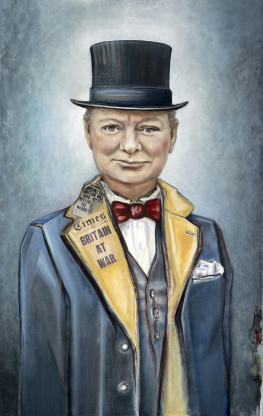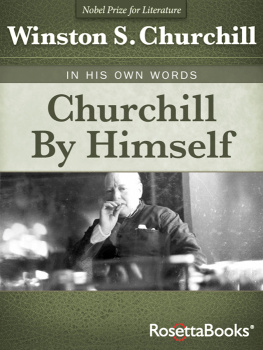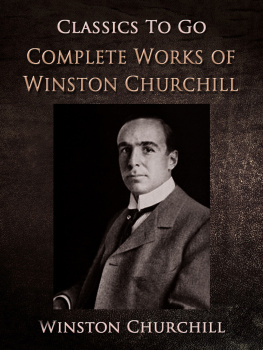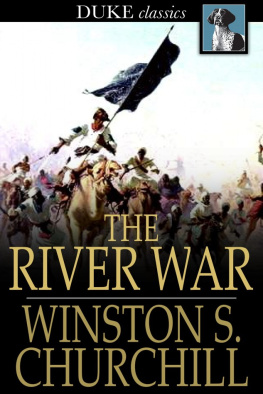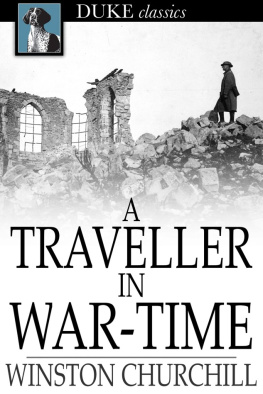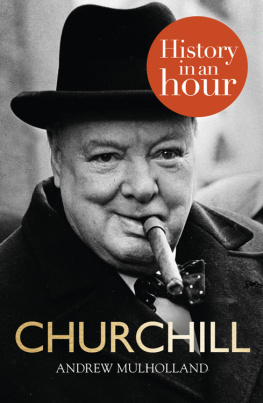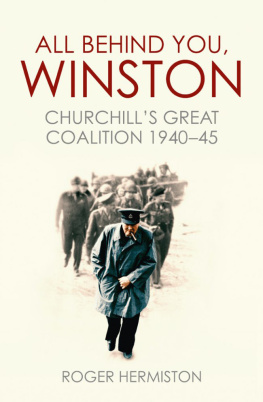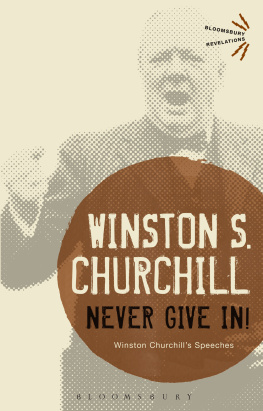Contents
Pagebreaks of the print version

All About
Winston Churchill
C. A. Crane

All About Winston Churchill
Copyright 2017 by C. A. Crane
Published by Blue River Press
Indianapolis, Indiana
www.brpressbooks.com
Distributed by Cardinal Publishers Group
A Tom Doherty Company, Inc.
www.cardinalpub.com
All rights reserved under International and Pan-American Copyright Conventions.
No part of this book may be reproduced, stored in a database or other retrieval system, or transmitted in any form, by any means, including mechanical, photocopy, recording or otherwise, without the prior written permission of the publisher.
ISBN: 978-1-68157-098-3
Author: C. A. Crane
Editors: Dani McCormick, Charleen Davis
Interior Illustrators: Bryan Janky, Elizabeth Wells
Book Design: Dave Reed
Cover Artist: Jennifer Mujezinovic
Cover Design: David Miles
Printed in the United States of America
23 22 21 20 19 18 17 1 2 3 4 5 6 7
All About
Winston Churchill
Preface
Winston Churchill was arguably the greatest leader and statesman of the twentieth century. He was revered not only in Britain but around the world. He is perhaps best known for his politics and for serving as a beacon of light during World War II. He saw early on how evil Adolf Hitler and the Nazis were, but it took some time for others to follow his lead. His alliance with America under President Franklin D. Roosevelt was key to winning the war.
Churchill was also a famous author and painter. He was awarded the Nobel Prize for Literature in 1953. He is still discussed today, and people quote him or mention him in books, speeches, movies, and TV shows. Churchill is very much alive in peoples minds and imaginations, and they point to him when they desire their politicians to live up to Churchills example of extraordinary leadership.
He holds a special place in the hearts of many Americans as well. President John F. Kennedy awarded an honorary U.S. citizenship to Churchill in 1963. Winston was a master of words and a man of abundant wit and wisdom. His ability to inspire, lead with confidence and conviction, and take responsibility for his actions defined his character. People admired how he defended his moral and ethical principles and appreciated his good-hearted nature. He did his best to not hold grudges or seek revenge, and always tried to genuinely enjoy life. Altogether, that is what makes him one of the most popular and admired figures of our time.
Chapter 1
Early Childhood
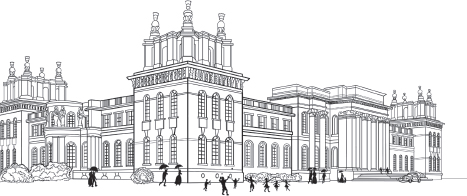
Winston grew up at Bleinheim Palace and liked to play on the lawn
On November 30, 1874 in Blenheim Palace in England, Winston Leonard Spencer Churchill was born. Winston was from a prominent English family line (Spencer-Churchill) from his fathers side. Lord Randolph Churchill, Winstons father, was the third son of the seventh Duke of Marlborough.
Winstons roots were also half American. His mother, the beautiful socialite Jennie Jerome, was from Brooklyn, New York. She was the second oldest of four sisters. Her father, Leonard, was a wealthy American banker and founded the American Jockey Club that registered Thoroughbred horses. Jennie attended school mainly in Paris. She was well-known in European social circles, and when Lord Randolph met her it was love at first sight. Jennies social contacts greatly enhanced Lord Randolphs political career.
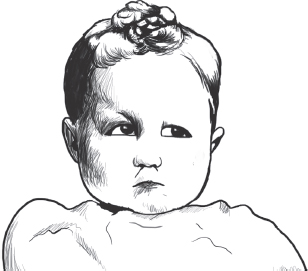
As a baby, Winston did not show any hint that he would one day be world famous
From ages two to six, Winston lived in Dublin, Ireland, where his grandfather was a Viceroy, an appointed official of the British monarchy. His job was to help the King govern Ireland, and Winstons father worked as his secretary. Winston loved to watch the parades and was fascinated by the extravagant celebrations that he saw in Ireland.
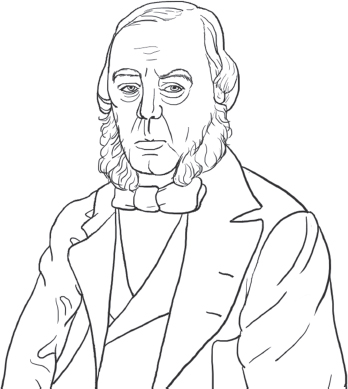
Winstons grandfather the seventh Duke of Marlborough was appointed by the King of England to help rule Ireland
As a toddler, living in a house called The Little Lodge, he ran and hid in the bushes when he heard a teacher was coming to begin education. He had to learn how to read without crying. Winston also had to do math by hand; there were no calculators or computers. Once he finished one worksheet, another one followed. Winston said, There appeared to be no limits to these. Lessons kept him from more fun activities that he wanted to do.
In 1879, the family moved back to England. Winston didnt have many friends his age because he moved around so much. He had adult friends that told him stories. He was particularly attracted to stories that centered on wars and soldiers.
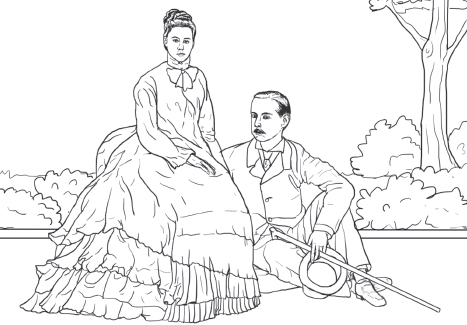
Winstons parents were Englishman Lord Randolph Churchill and American Jennie Jerome
When he was four, Winston watched the HMS Eurydice capsize. The boat had been badly damaged by a storm and sank near the Isle of Wight. All but two of the crew died. There was little anyone could do to save the people aboard, which bothered Winston.
Lord Randolph, Winstons father, was a politician. He held various positions, such as Secretary of State for India, Leader of the House of Commons, and Chancellor of the Exchequer. He fought hard for his Conservative Party. He seemed poised to be the Prime Minister, but a number of political blunders and a misunderstanding led to his resignation at a relatively young age.
Because his father was so busy, he didnt spend much time with Winston, which was hard on the young boy. However, Winston loved and greatly respected his father. Winston would often defend him if he was mocked in the press or if Winston overheard any hurtful comments. Winston learned from his father and tried to earn his respect. Winston seemed to finally get closer to his father when he attended a military academy and began moving up and gaining accolades.
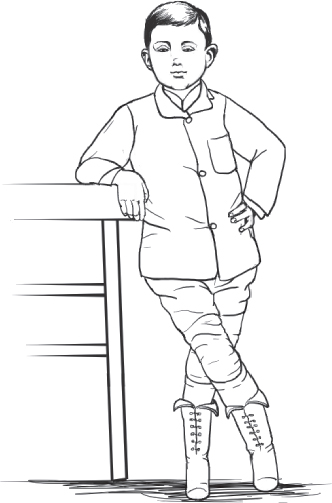
Young Winston was not seen as a scholar and was often underestimated by adults
His mother Jennie saw to Winstons education and helped to provide him with opportunities to build his professional and social life, which already had a strong foundation because of his familys prestige. Both his parents sent him books when he was away at school, but they remained distant. As a boy, Winston put his parents on a pedestal. He once said that his mother always seemed to me a fairy princess: a radiant being possessed of limitless riches and power. She shone for me like the Evening Star. I loved her dearlybut at a distance.
Winston was very close to his nanny, Mrs. Everest, a modest woman who was like a second mother to him and cherished him. Winston once wrote, [She] was my confidante. Mrs. Everest... looked after me and tended all my wants. It was to her I poured out my many troubles, both now and in schooldays.

